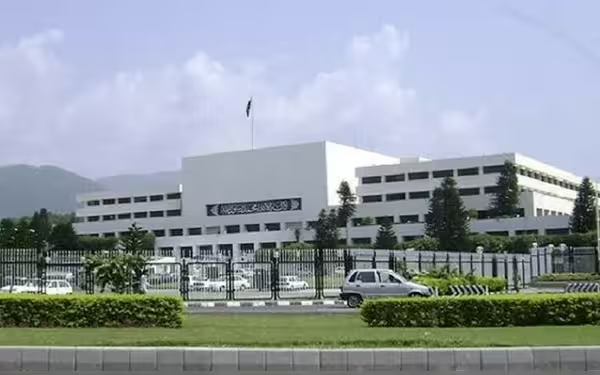Saturday, November 16, 2024 09:49 PM
Journalists Prohibited from Video Recording in Pakistan Parliament
- National Assembly bans video recording by journalists.
- Concerns over media transparency and public trust.
- Impact on democratic discourse and citizen engagement.
 Image Credits: dawn.com
Image Credits: dawn.comThe National Assembly's ban on journalists' video recording raises concerns about media freedom and public trust in Pakistan's democratic processes.
The recent decision by the National Assembly Secretariat to prohibit journalists from making videos inside the Parliament House has raised eyebrows across the media landscape in Pakistan. For years, working journalists have been allowed to capture the views of Members of the National Assembly (MNAs) and document important discussions on their mobile phones. This practice has provided the public with valuable insights into the workings of their government, especially after assembly sessions and meetings of standing committees that address both national and international issues.
However, it appears that the increasing prevalence of social media content has caused concern among the authorities. The National Assembly Secretariat's ban on video recording is seen as a reaction to the potential for misrepresentation or misuse of the footage shared online. While the intention may be to maintain decorum and control the narrative, this move raises significant questions about transparency and the role of the media in a democratic society.
Journalists play a crucial role in informing the public about governmental activities and decisions. By restricting their ability to record and share information, the National Assembly risks alienating the very citizens it serves. The public relies on journalists to provide accurate and timely information, and any barriers to this process can lead to a lack of trust in governmental institutions.
Moreover, the ban could stifle the vibrant discourse that social media has fostered. In an age where information is shared at lightning speed, the ability to capture and disseminate video content is more important than ever. It allows for a more engaged and informed citizenry, which is essential for a healthy democracy.
While the National Assembly Secretariat may have its reasons for implementing this ban, it is vital to consider the broader implications for media freedom and public engagement. A balance must be struck between maintaining order within the Parliament and ensuring that the public remains informed about the actions of their elected representatives. As the situation unfolds, it will be interesting to see how journalists adapt to these new restrictions and what impact this will have on the relationship between the media and the government.













